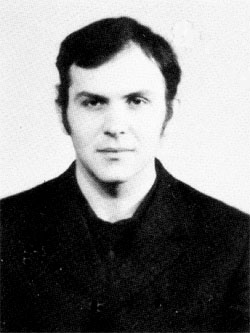 Semion Levit
|
|
Born in 1947 in Kishinev, he studied in Leningrad where he joined an underground Zionist group to study Hebrew, Jewish history and culture and the history of Zionism. This group was also involved in the dissemination of the idea of freedom for Jews to travel to Israel. He was arrested in 1970, and tried at the end of 1971 at the Kishinev trial. Sentenced to 2 years imprisonment in the Mordovian camp, he was released in 1.5 years. In 1973 he carried out his dream of emigrating to Israel. |
 Boris Maftser
|
|
Born in 1947 in Riga, he graduated from Riga Electromechanical Technical school and went on to study for 3 years in the Moscow Art Polygraph Institute., later working as a senior engineer in an experimental factory of art accessories in Riga. Arrested on August 4th, 1970, and tried in May, 1971 at the Riga trial, he was. sentenced to a year of imprisonment in a high security Gulag camp. |
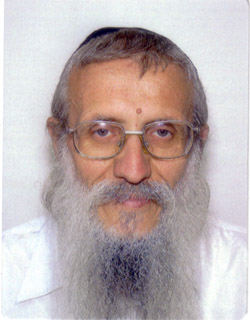 Yosef Mendelevich
|
|
Born in 1947 in Riga, into an observant Jewish family, he entered Riga Polytechnic Institute in 1965 and in 1968, together with his family, applied for an exit visa to Israel, but was refused. He left the Institute in 1969 as it was considered that higher education could be an obstacle to obtaining an exit visa. He had participated in an illegal Zionist movement in Riga from 1963 and in 1966 created the Youth Zionist Organization, also taking part in the creation of the UCC (All-Union Coordinating Committee) and from 1969 became a co-editor of "Iton" (samizdat UCC bulletin). Arrested on June 15th, 1970, in Leningrad, together with the other participants in the “aircraft hijacking” plot, he was sentenced to 15 years imprisonment in the high security camps of the Gulag. On Dec 30, 1970 the Supreme Court of RSFSR reduced his term to 12 years in a high security camp. Yosef Mendelevich served his time in the 17th zone in Mordovia and in the 36th zone in the Ural Mountain camps. While there, he illegally created an organization (kibbutz) where he taught Hebrew and Torah. Tried again in 1977 for the conducting of religious practices, he received an additional sentence of 3 years imprisonment in the infamous Vladimir Central prison. In 1981 he held a 56-day hunger-strike to protest the confiscation of those of his personal books which had been published in Israel. This led to the return of some of them. In 1981, after the meeting of Edgar Bronfman (President of the World Jewish Congress) with the ambassador of the USSR to the USA (Dobrynin), and by decree of the USSR Yosef was deprived of his Soviet citizenship on February 18th, and was sent directly from prison to the Sheremetyevo airport, from where he took off via Vienna for Israel. He served as a reservist in the Israel Defence Forces from 1983 till 1990, in Hebron among other places. He received his second degree in Jewish History from the College of Turo and from the Chief Rabbinate of Israel he received "Semicha” which is considered amongst the most prestigious of contemporary ordinations. He was also awarded an honorary PhD degree. He now teaches Talmud and Jewish Philosophy at the Machon Meir Institute of Jewish Studies in Jerusalem. He is a father of 7 children and lives in Jerusalem. |
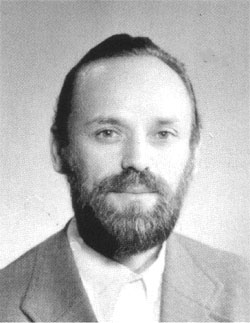 Yosef Meshener
|
|
Born on July 22nd, 1935, in Romania, he became an ardent Zionist because of the rampant anti-Semitism in postwar Soviet Union and thus became involved in Zionist activities. He consistently hassled the authorities, demanding the right for Jews to emigrate to Israel. In 1970 he was arrested on charges of Zionist activity and sentenced to 6 years imprisonment in the Gulag. Released in 1976, he left for Israel in the same year. |
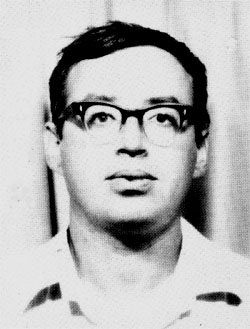 Zeev Mogilever
|
|
Born in 1940 in Leningrad, he joined a Zionist group in the early 60s, which was fighting for the legitimization of the right for Soviet Jews to emigrate freely to Israel. In 1965 he began to study and then to teach Hebrew. In 1966 he was one of the founders of the Zionist underground organization in Leningrad and was a member of its committee until his arrest in 1970. In August of 1969 he filed an application to OVIR requesting permission to leave for Israel, but was refused. Arrested on June 15th, 1970, he was charged with anti-Soviet Zionist activities and in May 1971, (the 2nd Leningrad trial), was sentenced to 4 years imprisonment in a high-security camp in the Gulag where he continued his Zionist activities even in the camp. Released in 1974, he left for Israel that same year. |
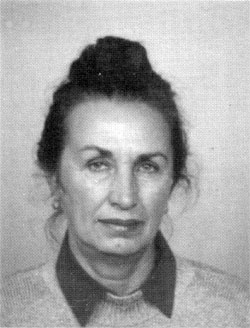 Rosa (Reize) Palatnik
|
|
Born in 1936 in the Balta, Ukraine, she lived in Odessa, where she worked as the Head of Department in the Odessa City Library from 1962 to 1970. Arrested in 1970 on charges of Zionist activity, she was sentenced to 2 years in prison. In 1972 she emigrated to Israel. |
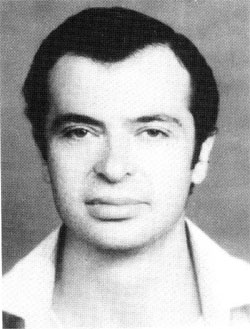 Boris Penson
|
|
Born on the 2nd of January, 1946 in the city of Tashkent, he and his family moved to Riga, Latvia, in 1950 where he graduated from an art school. In 1967 he decided to emigrate to Israel but was refused a visa. After endless requests and refusals, he joined the Dymshits group which planned the hijacking of an aircraft to escape from the Soviet Union. In June 1970, together with other members of the group, he was arrested by the KGB at the Smolny airport. In December 1970, at the 1st Leningrad trial,, he was sentenced to 10 years of high-security imprisonment. He served his sentence in the political camps of Mordovia but, as a result of international pressure and a special agreement with America, he was released in 1979, and allowed to emigrate to Israel in the same year. |
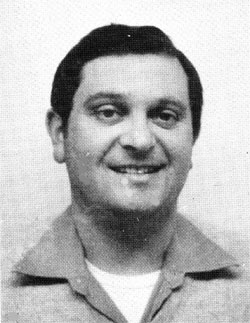 David Rabinowich
|
|
Born in 1947 in Kishinev, Moldova into an observant and Zionist family, he became an activist, in the mid 60s, in the Jewish grass-roots theater in Kishinev; he also organized working relationships between young Jewish intellectuals from Kishinev and Jewish youth groups in many other cities of the USSR to study Hebrew, Jewish history and the history of Israel. Arrested in 1970, he was sentenced at the Kishinev trial in 1971 to 1 year’s imprisonment in a Kishinev jail. He was released in 1971 and emigrated to Israel in 1973. |
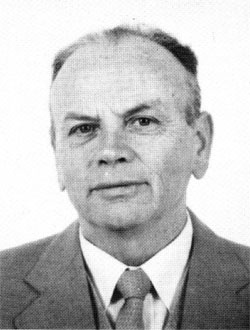 Haim Renert
|
|
Born in 1923 in Vizhnits, Romania, he entered the religious-national Zionist organisation "Mizrahi" at the age of 14 and became an active member of this movement. In 1956 he began fighting for his right to emigrate to Israel. Arrested in 1970 on charges of Zionist activity and attempting to bribe officials for an exit visa to Israel, he was sentenced in 1971 to 5 years imprisonment in the Gulag. He served his time in the Chernovitsky prison and in the Volgodonsk camp. Released in 1976, he left for Israel in the same year. |
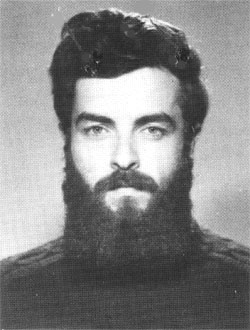 Michael Shepshelovich
|
|
Born in 1943 in the town of Cherepanovo, USSR, he was prompted by the anti-Semitism that prevailed in the Red Army and the universities of the Soviet Union, to become involved with the problems of the Jews, Zionism and the State of Israel. This, in its turn, led him and his friends to take an active part in Zionist propaganda, spreading Zionist literature and Israeli materials. He and his friends were arrested in 1970 on charges of Zionist activities, and in May 1971, at the Riga trial, he was sentenced to 2 years imprisonment in the Gulag. Released in 1972, he left for Israel within a few weeks. |
 Victor Shtilbans
|
|
Born in 1941 into an assimilated Jewish family, he graduated from the Leningrad Institute of Pediatrics. Prior to his arrest he worked in a research institute in Leningrad and had almost completed his Ph.D. thesis. Arrested on August 20th, 1970, he was tried at the 2nd Leningrad trial in May 1971 and was sentenced to 1 year’s imprisonment in a high-security camp. |
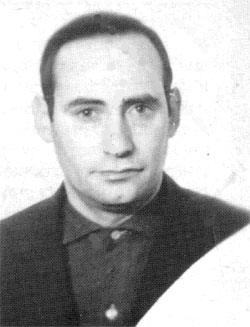 Hillel Shur
|
|
Born in 1936 in Vitebsk, he began his Zionist activities in 1967. Arrested on charges of Zionist activity in 1970, he was sentenced to 2 years in the Gulag. Released in 1972, he emigrated to Israel during the same year. |
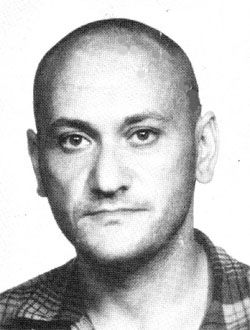 Aaron Spielberg
|
|
Born in 1938 in Sestroretsk, near Leningrad into an almost totally assimilated family, he was influenced by the growth of anti-Semitism in the Soviet Union and the threatening "Doctors' trial" in 1952 while still a high school student, which led to his understanding of his Jewishness and of Zionism. Becoming a member of an underground Zionist organization in Leningrad in 1966, he moved to Riga the following year where he distributed Zionist materials and the poems of Byalik. Arrested in 1970 on charges of helping organize the flight of Jews from the Soviet Union and other anti-Soviet sabotage, he was sentenced at the Riga trial of May, 1971 to 3 years of high-security imprisonment in the Gulag. He served his time in the Potma camps in Mordovia. Released in 1973, he left for Israel in the same year. |
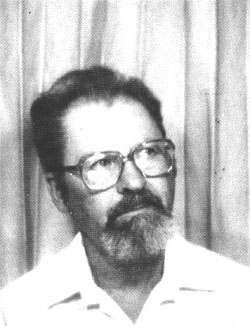 Yakov Suslensky
|
|
Born in 1929 in Anan'evo, in the Leningrad region, he became a member of an underground Zionist organization. Arrested in 1970 on charges of Zionist and anti-Soviet activity, he was sentenced to 7 years imprisonment in the Gulag. His time was served in the camps of Mordovia and Perm, and also in the Vladimir prison. He wrote many letters of protest to the Soviet authorities against the growing anti-Semitism in the Soviet Union. Released in 1977, he left for Israel in the same year. |
 Lazar Trachtenberg
|
|
Born on Jan. 26th, 1946 in Tula into a traditional Jewish family, he graduated from Leningrad Polytechnic University. On August 17th he was arrested and tried in June 1971 at the Kishinev trial, getting a sentence of 2 years imprisonment in a high-security camp of the Gulag. |
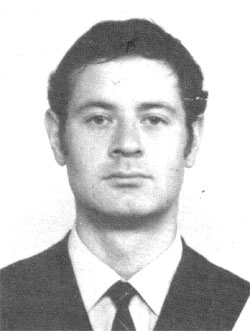 Arkady Voloshin
|
|
Born in 1946 in Kishinev into an assimilated family, he and his friends organized, in 1969, ulpanim in his home town for the study of Hebrew, the history of the Jewish people and Zionism. Arrested, in 1970, on charges of Zionist propaganda and anti-Soviet activities, he was sentenced at the Kishinev trial to2 years imprisonment. Released in 1972, he left for Israel in the same year. |
 Israel Zalmanson
|
|
Born in1949 in Riga into a traditional Jewish family, he studied in the Riga Polytechnic University, not succeeding in graduating due to his arrest in June 1970. Tried in the 1st Leningrad trial, he was sentenced to 8 years imprisonment in high security Gulag camps. Released in 1979, he now lives in the USA. |
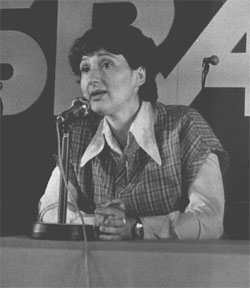 Silva Zalmanson
|
|
Silva Zalmanson was born in 1944 in Riga to a traditional Jewish family; she graduated in 1968 from the Riga Polytechnic University and started working as an engineer-designer in Riga. She applied several times and unsuccessfully for an exit visa to leave the USSR for Israel. Silva was the only woman among the group of 16 people, which planned to hijack an aircraft to escape to Israel. She was arrested, and tried at the 1st Leningrad trial of June 15th, 1970, where she was sentenced to 10 years high-security imprisonment in the Gulag. At the trial she justified her actions with the words from Biblical Psalm 137:6 "If I forget thee, O Jerusalem, let my right hand forget her cunning" |
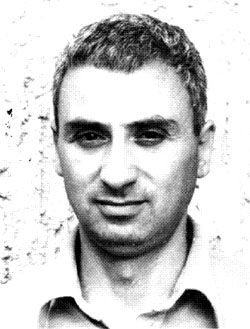 Wulf (Zeev) Zalmanson
|
|
Born in 1939 in Riga, Latvia, he together with his friends, worked at the creating of a memorial for 33 thousand Latvian Jews, killed by Latvian and German Nazis in the Rumbulsky Forest during the years of the Holocaust - an activity towards which the attitude of the Soviet regime was very hostile. He was one of the most prominent and respected Zionist workers in the Baltic States which led to his arrest in 1970 when he was charged with Zionist anti-State subversive activity, the distribution of anti-Soviet materials, theattempt athijacking an aircraft to fly to Israel, and also with treason against his native land. Since at that time Wulf was an officer in the Soviet Army, he was tried by a military tribunal and sentenced in 1971 to 10 years imprisonment in the Gulag. Released in 1979 he immediately left the USSR for Israel, where he was elected to the Council of the Organization of the Prisoners of Zion. |